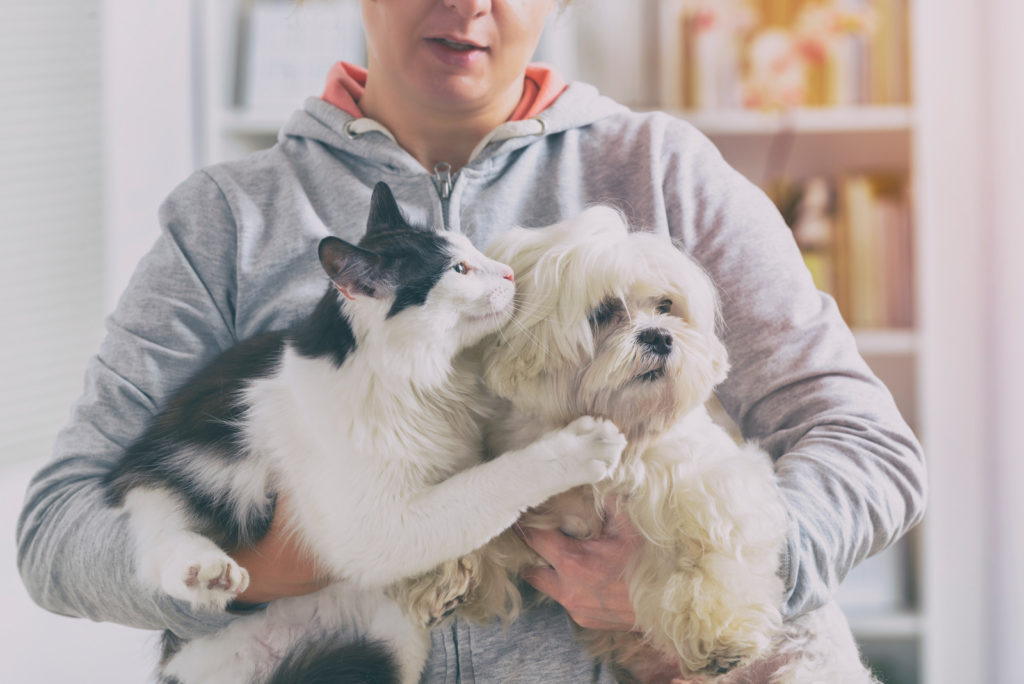Mandaue City, Cebu–It’s no secret that pet ownership can have health, emotional, and social benefits.
However, our household pets can be carriers of infection that is transmittable to us humans.
According to the World Health Organization (WHO), a zoonosis is any disease or infection that is naturally transmissible from vertebrate animals to humans.
Zoonotic diseases may be bacterial, viral, or parasitic, and sometimes may involve unconventional agents.
Most of these zoonotic diseases can go unrecognized, unreported, or even untreated. Although the risk of getting diseases from a pet is low for most people, children, pregnant women, the elderly, and the immunocompromised are vulnerable to zoonotic infections.
So take note of these simple things that you can do to minimize the risk and keep your pets and your family healthy.
In this article, CDN Digital compiled what habits you can practice to keep your home healthy even with your pets.
When you are having allergies, it is best to stay away from your pets for a while or limit their access to common areas of the house. | CDN Stock Photo
1. Limit their access
To avoid allergies, limit your pet’s access in your bedroom where you spend a lot of time to rest.
As much as possible make the bedroom a dander-free zone. Shut your doors and assign a sleeping area for your pet.
Whenever you have allergies caused by other factors, it is best to limit your pet’s access to other areas of the house where you spend more time in the day. Pet dander can linger and may take weeks or even months to see the effects.
Do not handle tasks such as grooming, maintaining the pet’s bedding, and cleaning the litter box when you have allergies.
Wash your hands regularly especially after handling your pet and their supplies, including their food. | CDN Stock Photo
2. Maintain good hygiene
Always wash your hands with soap after handling, playing, and cleaning up after your pets. This rule also applies when you have contact with their food, supplies, and even their toys.
You don’t need to touch your pets to get sick from the germs they may be carrying. Even when we think our pets are healthy, they can contaminate surfaces in your home with germs.
Also make sure to keep your pets away from areas where food and drinks are prepared, served, consumed, or stored to avoid contamination and cause other health problems.
Young children or children aged five and below needs parental supervision when handling and playing with pets. | CDN Stock Photo
3. Don’t leave your kids alone with your pets
Children aged five and below can be at higher risk for pet-related illnesses because they often touch surfaces that may be contaminated and put objects in their mouths.Young children should be supervised around pets, even pets that you already trust.
These young children are also more prone to bites and scratches and when certain diseases spread from animals, they are more likely to get seriously ill.
Prevent your kids from kissing your pets or put their hands in their mouths after playing with pets. Follow up with bathing your children or wash their hands thoroughly after they interact with your pets.
Cleaning up after your pet can avoid other health issues for you and other people. | CDN Stock Photo
4. Clean up properly
Scoop cat litter every day, especially when someone is pregnant at home. Try your best to change it at least twice every week but don’t let pregnant women clean cat litter.
Also try your best to remove dog waste from private and public spaces. Be prepared with a garbage bag to pick up your dog’s waste and throw it in the proper trash bin for toxic waste.
Also regularly clean cages, and supplies such as toys outside the home when possible to avoid contaminating other surfaces of your home.
READ MORE: Pet care basics to show your love for your pets
Having a trusted veterinarian for your pet will have positive benefits not just for your fur babies but also for you and your family. | CDN Stock Photo
5. Prioritize your pet’s health
Maintain your pet’s healthy diet, give them fresh water, and make sure they can exercise. When your pets are healthy, you can also help yourself and family stay away from unwanted pet-related illnesses.
A veterinary care routine is also advised to get vaccinations, de-worming, and flea and tick control to protect them, and you as owner. When they have proper veterinary care, you can also make sure that they will have less to no chances of contaminating your home with germs.
If you think your pet is sick, take them to their veterinarian and include your pets in your emergency preparedness plans in case of an emergency.
What other strategies to do you practice to ensure your family’s and pet’s health at the premium state? Let us know in the comments section of this video.
